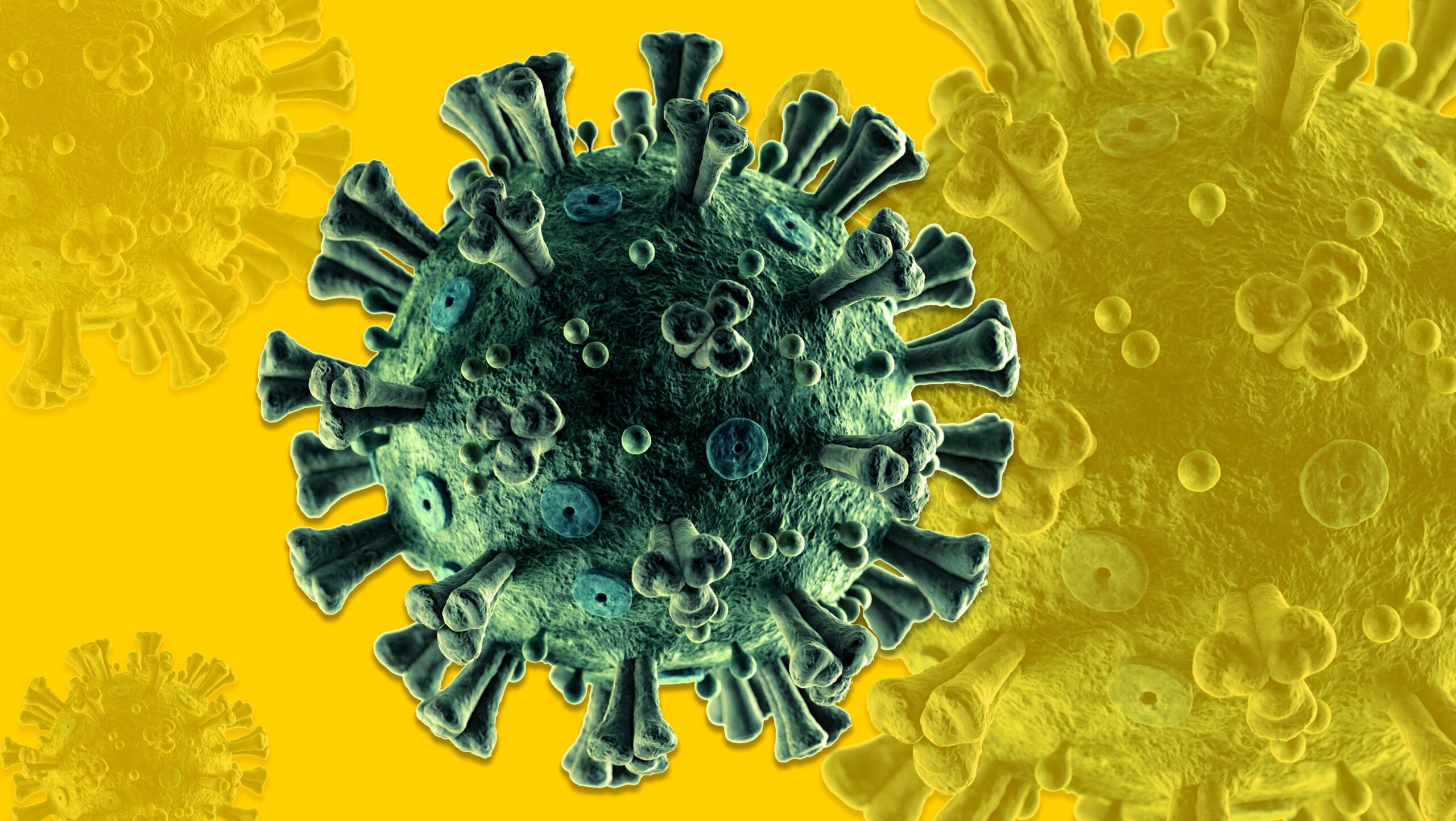On the night of Mar. 15, I saw the news that an enormous display of the AIDS Memorial Quilt, set for early April in San Francisco, had been cancelled. It was not a surprise: Earlier in the day, I’d begun to hear the first stories of elderly people with fever and cough being turned away from packed emergency rooms on both coasts of the United States.
In the afternoon, I read the news of American doctors hospitalized in intensive care units with life-threatening COVID-19 infections. And that evening, after the Centers for Disease Control and Prevention (CDC) released a recommendation that gatherings of more than 50 people be suspended for two months, a swath of U.S. cities announced restrictions on public spaces and states of emergency and many restaurants and bars closed their doors. (Similar restrictions had been put into place throughout Canada.)
Of all the events that have been indefinitely delayed over the past few days, the quilt’s display might be the one we need most. Its 54 tons and 1.3 million square feet are a massive and unignorable admonition: Those who cannot remember public health history are doomed to repeat it.
As an infectious disease doctor, epidemiologist and health journalist, I hear so many echoes of the U.S.’ response to HIV/AIDS in its unfolding response to COVID-19. To me—and to so many people who survived the early days of the American AIDS epidemic—relics of that time are also reminders of the failures that allowed a preventable disease to take so many from this world: The delays in acknowledging and communicating the sheer brutality of its destructive force; the horrors of seeing it burn through communities while advances in its treatment were tangled and immobilized in bureaucratic red tape; the stigma and othering that denied dignity and equity to the communities bearing its brunt.
“All the science that we applied to HIV over these last 40 years has accelerated our ability to understand COVID-19,” says Michael Gottlieb, a Los Angeles physician who was the first to identify AIDS in the early 1980s. “We should’ve been way ahead of the game, but the reality is that we’ve already failed and are having to play catch-up.”
“As an infectious disease doctor, epidemiologist and health journalist, I hear so many echoes of the U.S.’ response to HIV/AIDS in its unfolding response to COVID-19.”
In 1982, the Reagan administration treated the HIV/AIDS epidemic like a joke. “I don’t have it,” said then-White House press secretary Larry Speakes to a persistent reporter who’d asked about the president’s response to what was then a 600-person epidemic. Two years later, more than 3,600 Americans had died from AIDS-related illnesses and while a test had been developed to protect the safety of the American blood supply, there was still no available lab test to diagnose the infection in people. A screening test for the infection was not developed until public health officials raised concerns that people at risk for HIV would attempt blood donation just to learn their status, thus jeopardizing the country’s blood supply.
“We were dying in an invisible war,” says Mark Milano, a New York City HIV activist and member of ACT UP who was diagnosed with AIDS in 1982. “The government actively said, ‘We don’t give a damn.’” In the early days of the epidemic, the lack of knowledge about HIV transmission led to widespread fear and stigma manifesting as social avoidance, rejection and violence and healthcare workers refusing to care for people living with the infection—leading to worse health outcomes for people living with HIV.
In those early days, it was called “gay-related immune disease,” or GRID—and sometimes “gay cancer” or “gay plague.” In 1985, with nearly 25,000 people dead, the dean of Harvard’s School of Public Health described those responsible for the virus’ spread as “bisexual men and prostitutes who are drug addicts.”
“Folks in the White House took the view that it was bad people getting the disease,” says Richard Rothenberg, a public health professor at Georgia State University who has worked in public health since the early 1970s.
Reagan didn’t publicly discuss HIV/AIDS until 1987, and by the end of his administration in 1989 he had done little to combat the spread of the disease. When biomedical advances led to the promise of lifesaving HIV treatment in 1987, the drug’s public rollout was delayed by a thicket of bureaucratic rules: The U.S. Food and Drug Administration’s (FDA) regulations only allowed experimental drugs to be used in formal, placebo-controlled trials. Unprecedented pressure from the AIDS activism community—including “die-ins” and an effort to storm the National Institutes of Health—led to the development of the FDA’s “compassionate use” program, then called “expanded access,” which allows effective drugs to be used in fatally-ill people before they’re officially approved and broadly marketed.
“The events of the past few months have played out like a compressed timeline of the 1980s.”
What we should’ve learned from the HIV/AIDS epidemic is that in an outbreak of this magnitude, responding early saves lives; testing early saves lives; transparent public messaging saves lives; reducing stigma saves lives; sharing science and expediting broad access to its advances saves lives.
America has not learned these lessons. The events of the past few months have played out like a compressed timeline of the 1980s. It’s hard not to see parallels between those grim days and these almost Biblical ones.
In late January, one month after officials in China leapt into action to contain a new virus that was making people ill—and killing many—in Wuhan, U.S. President Donald Trump, on no basis of fact, reassured the public: “It will all work out well.”
Despite the sounding of public health alarms, the only aggressive action his administration took was to bar foreign travellers from China from entering the U.S. on Jan. 31—a decision with questionable public health impact and high potential to increase stigma.
In mid-January, virologists in Berlin developed the first diagnostic test for the COVID-19 virus, and six weeks later, the World Health Organization shipped tests to almost 60 countries. But for reasons still unclear, the U.S. declined to use them—and now, after a fiasco following the rollout of a faulty CDC test and bureaucratic delays at the FDA that continue to make testing profoundly scarce throughout the country, the U.S. still has only the faintest idea about the true footprint of the epidemic.
Amid the decentralized and globally discoordinated public health response to the pandemic, a swirl of conflicting public health messages about how to protect oneself has confused and frightened North Americans.
Meanwhile, our elected officials have spoken of the epidemic in terms that stigmatize by ethnicity and geography, with several American politicians referring to the COVID-19 virus as the “Wuhan virus” and the “Chinese coronavirus.” Chinese and other East Asian communities in the U.S. and Canada have experienced acts of violence stemming from discrimination and xenophobia.
As in the HIV/AIDS epidemic, there is concern among public health authorities that stigmatizing behaviour during this pandemic could lead sick people to avoid seeking the medical care they need.
And in a move widely seen as an attempt to bend science toward the most venal self-interest, Trump recently offered a German pharmaceutical company “large sums of money” for exclusive U.S. access to a COVID-19 vaccine.
It’s a far cry from the efforts to broaden access to treatment that have characterized HIV activism since the first antiretroviral drugs were developed.
“Our leaders seem to have learned nothing from this country’s shameful lack of leadership in the early years of HIV.”
Milano says that while agitating to accelerate development of antiretroviral treatment to treat HIV, ACT UP “also had to fight racism and sexism and homelessness and homophobia and all the things that fuel an epidemic.”
“Epidemics are not only a product of the pathogen and the immune system,” he says, “they’re a product of people not having healthcare.” U.S. leaders had access to a wealth of information demonstrating these links in the wake of the HIV/AIDS epidemic—yet they have made minimal progress in addressing the social determinants of health that fuel outbreaks like the one we’re confronting now.
Our leaders seem to have learned nothing from this country’s shameful lack of leadership in the early years of HIV. However, says Milano, many other Americans have: Grassroots organizing changed the trajectory of the HIV/AIDS epidemic, and it could do the same for this one.
“If things don’t start happening in the next week or two,” says Milano, “people might start taking to the streets.”


 Why you can trust Xtra
Why you can trust Xtra


